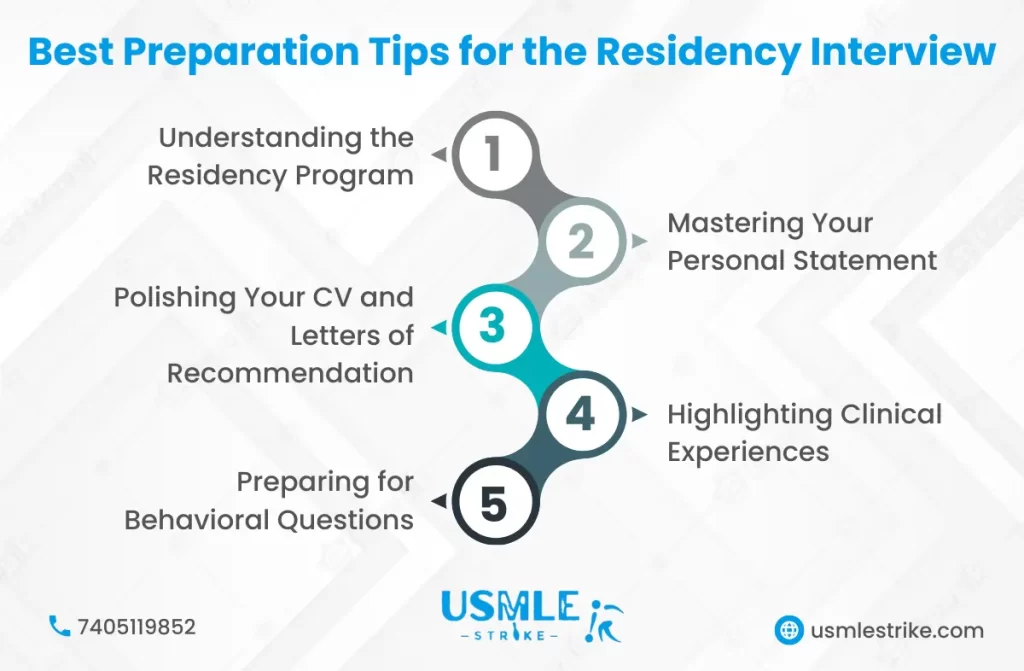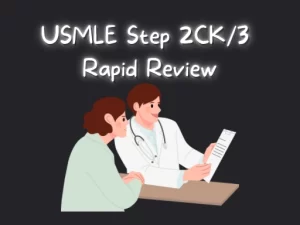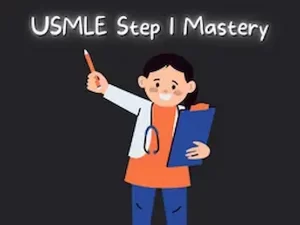Navigating the journey towards a residency position in the United States is a pivotal phase in every medical graduate’s career. As you transition from the rigorous USMLE exams to facing residency interviews, preparation for residency interview becomes your key to success. This guide dives deep into effective strategies for residency interview preparation, with a special focus on leveraging resources from the ECFMG and USMLE websites.

Understanding the Preparation for Residency Interview Process
Preparation for residency interview are a critical component of the medical residency application process, providing a platform for program directors to assess candidates’ fit for their programs. The ECFMG and USMLE offer comprehensive insights into what to expect during these interviews, particularly for international medical graduates (IMGs), emphasizing the importance of preparation for residency interview. The first step in how to prepare for residency interviews is thoroughly researching each program on your list.
Preparing with ECFMG
- ECFMG Certification: Ensure you are ECFMG certified, as this is a prerequisite for IMGs applying for residency programs through the Match. The ECFMG website provides a checklist and timeline to help you stay on track with your certification process, highlighting the crucial step of preparation for residency interview in your journey.
- ERAS Application: The Electronic Residency Application Service (ERAS), supported by ECFMG for IMGs, is your gateway to applying for residency positions. Familiarizing yourself with the ERAS timeline and requirements is crucial to ensure your application is comprehensive and submitted on time, serving as a foundational step in your preparation for residency interview.
USMLE Step 2 CK Insights
Step 2 CK Preparation: The Step 2 CK (Clinical Knowledge) exam assesses your medical knowledge and understanding of clinical science. High performance on this exam can enhance your residency application, making you a more competitive candidate and serving as a crucial part of your preparation for residency interview.
ERAS Timeline for USMLE Residency Interview
| Month | Tasks and Activities |
|---|---|
| Early June | – ERAS season opens- Access MyERAS portal |
| June | – Start your application- Shortlist residency programs of interest |
| June – August | – Refine your application- Secure letters of recommendation- Review and polish your personal statement- Finalize your list of residency programs- Request official transcripts- Prepare for residency interviews |
| September | – Submit your ERAS application (avoid last-minute submissions)- Register for the National Resident Matching Program (NRMP) |
| October | – Residency interviews commence |
Read also: How to Write a Residency Personal Statement
How can I prepare for my residency interview?
Preparing for residency interview involves several steps that can help you present yourself as a well-prepared candidate. Here’s a breakdown of what to focus on:
Don’t worry about interview timing: Whether your interview is early or late in the cycle, it won’t affect how programs rank you. Focus on preparing for each interview as it comes, considering both logistical and content aspects.
Logistical Preparation
- Arrange Travel: Plan your travel efficiently, considering geographical logistics and allocating time to explore the area or unwind post-travel. Check if the programs provide housing or travel assistance.
- Gather Details: Ensure you complete any necessary paperwork ahead of time. Programs usually send interview details via ERAS or email. The residency program coordinator is a valuable contact for any queries.
Content Preparation
- Research the Program and Faculty: Familiarize yourself with the residency program by reading materials sent to you and exploring their website. Understand faculty interests to identify common areas you might discuss.
- Formulate Questions: The AAFP offers a list of insightful questions, curated with help from family medicine residency directors, to help you assess a program’s strengths, challenges, and focus areas.
- Practice: Conduct mock interviews with a friend or mentor to refine your answers and get accustomed to various question types and styles.
Preparing for Residency Interviews
Residency interviews are a pivotal part of your medical career journey, and solid preparation for residency interviews is crucial to make a strong impression. Here’s a step-by-step guide to help you stand out:
- Research the program thoroughly: Before your interview, research the residency program in detail, including its strengths, values, and specialties. Tailor your answers to reflect how your goals align with the program’s objectives. This shows interviewers that you’re serious and committed.
- Prepare responses to common questions: Practice answers to frequently asked questions such as “Why did you choose this specialty?” or “What are your strengths and weaknesses?” Prepare to discuss your USMLE scores, clinical experiences, and any research or volunteer work you’ve done. Using USMLE interview preparation services can help refine your responses.
- Mock interviews and feedback: Engage in mock interviews to sharpen your speaking skills and gain feedback. Services offering residency interview preparation services or interview coaching for residency are incredibly helpful. They provide constructive criticism, simulate real interview scenarios, and improve your confidence.
- Present a professional image: First impressions count. Dress in professional attire and present yourself confidently. Your appearance should reflect your seriousness about the position and profession.
- Prepare questions for the interviewer: Show initiative by preparing thoughtful questions about the program’s curriculum, mentorship opportunities, and research involvement. This demonstrates your genuine interest in the program and helps you gather valuable information for your decision-making.
- Stay composed under pressure: Residency interviews can be stressful. Practice relaxation techniques like deep breathing or visualization before your interview to stay calm and focused. Residency interview preparation services often include stress-management techniques to help maintain composure.
- Follow up with a thank-you note: After the interview, send a polite thank-you email to the program director and interviewers. Reaffirm your enthusiasm for the program, highlighting aspects of the interview that resonated with you. This small gesture leaves a lasting positive impression.
By incorporating USMLE interview preparation services and interview coaching for residency into your preparation, you can increase your chances of success. Strong preparation for residency interviews showcases not only your knowledge and skills but also your dedication to securing the best fit for your medical career.
8 Tips for a Successful Preparation for Residency Interview
1. Craft an Excellent Personal Statement
Your personal statement is your opportunity to showcase your unique story and motivations for pursuing a residency in your chosen specialty. Ensure it’s well-written, honest, and reflective of your experiences and aspirations. Highlight key achievements and experiences that demonstrate your commitment and suitability for the program.
2. Be Ready to Talk About Your Application
Thoroughly review your application materials, including your personal statement, CV, and any submitted documents. Be prepared to discuss any aspect of your application in detail, providing additional context or elaborating on specific points as needed.
3. Research Commonly Asked Questions
Familiarize yourself with common preparation for residency interview questions, such as why you chose your specialty, how you handle stress, and your long-term career goals. Practice answering these questions concisely and confidently, ensuring your responses are thoughtful and reflective of your experiences.
4. Participate in Mock Residency Interviews
A critical component of how to prepare for residency interviews is practicing through mock interviews. Whether you conduct them with a mentor, a friend, or a professional service, mock interviews can help you refine your responses, manage your body language, and build confidence.
5. Understand the Structure of the Residency Program
Research the specific residency program you are interviewing with, including its structure, curriculum, faculty, and unique features. Demonstrating knowledge about the program shows your genuine interest and helps you tailor your responses to align with what the program values.
6. Know the Residency Interview Format
Understand whether your interview will be in-person, virtual, or a hybrid format. Familiarize yourself with the logistics of the interview process, including any technical requirements for virtual interviews. Being well-prepared for the format will help you present yourself more confidently.
7. Dress to Impress
Dress professionally for your interview, opting for conservative and formal attire. Your appearance should reflect your professionalism and respect for the interview process. Ensure your outfit is clean, well-fitted, and appropriate for the setting.
8. Have Questions for the Interviewers
Prepare thoughtful questions to ask your interviewers about the program, its culture, and opportunities for residents. Asking insightful questions demonstrates your interest in the program and helps you gather important information to make an informed decision.
Read also: How to Write a Personal Statement for a CV
What to Wear and How to Pack
- Professional Attire:
- Men: Wear a well-fitted suit in dark colors like navy or charcoal. Pair it with a white or light-colored shirt and a conservative tie.
- Women: Choose a tailored suit with a skirt or pants. Stick to neutral colors and avoid flashy patterns.
- Shoes: Opt for comfortable, polished shoes. For women, closed-toe pumps are recommended.
- Accessories: Keep it minimal and professional—simple jewelry, a conservative watch, and a neat hairstyle.
- Packing Essentials:
- Copies of your CV and personal statement: Bring at least 5-10 copies, as you may meet several interviewers.
- Portfolio: Include your medical school transcripts, letters of recommendation, and any certifications.
- Interview Day Essentials: Pack mints, a small notebook, and a pen. Also, bring a refillable water bottle to stay hydrated.
- Travel Preparation:
- Weather-appropriate Clothing: Research the local weather and pack accordingly.
- Backup Outfit: Always have an extra set of professional attire in case of spills or mishaps.
- Technology: Bring chargers for your phone and laptop, and consider a portable power bank.
Important Things to Know About Residency Interviews
Before diving into the interview, here are crucial things to keep in mind:
- Mock Interviews: Utilize residency interview preparation services or usmle interview preparation to practice through mock interviews. Getting feedback from professionals can significantly improve your performance.
- Understand the Program: Research the residency program thoroughly. Know its mission, values, and unique offerings.
- Know Yourself: Reflect on your strengths, weaknesses, and achievements. Be prepared to explain your journey, goals, and how you fit into the program.
- Prepare for Common Questions:
- Why do you want to join this program?
- Where do you see yourself in 5-10 years?
- Can you discuss a difficult case and how you handled it?
- Behavioral Questions: Residency interviews often include questions designed to assess your problem-solving skills and professionalism. Familiarize yourself with STAR (Situation, Task, Action, Result) to answer these effectively.
What are Residency Interviews Like?
Residency interviews are structured yet conversational. They assess not only your knowledge and clinical skills but also your personality and fit for the program.
- Format: Most residency interviews consist of multiple interviews with faculty members, current residents, and program directors.
- Virtual or In-Person: Due to changing dynamics, some interviews are now held virtually. Make sure you’re familiar with both formats.
- Interview Focus:
- Your clinical experience and decision-making abilities.
- How well you handle stressful situations.
- Communication skills and interpersonal interactions.
- Duration: Interviews can last for several hours, often including a tour of the facility and meetings with various staff members.
The best way to get accustomed to this format is by working with interview coaching for residency, which helps you tailor your responses to common questions and scenarios.
Common Residency Interview Questions
While researching, compile a list of frequently asked questions in residency interviews, such as:
1. Tell Me About Yourself
This classic opening question allows you to introduce yourself and highlight your background. Focus on your medical education, relevant experiences, and why you’re interested in the specialty. Keep your answer concise and relevant to the program.
2. Why Do You Want to Join This Program?
Discuss your specific interests in the program and how it aligns with your career goals. Mention unique aspects of the program, such as its faculty, research opportunities, or clinical experiences, and explain why these are important to you.
3. What Are Your Strengths and Weaknesses?
Be honest but strategic. Highlight strengths that are relevant to the residency program, such as teamwork or clinical skills. For weaknesses, discuss areas for improvement and the steps you’re taking to address them.
4. Describe a Challenging Situation and How You Handled It
Use the STAR method (Situation, Task, Action, Result) to structure your response. Provide a specific example of a challenging scenario, explain your role and actions, and describe the positive outcome.
5. How Do You Handle Stress and Pressure?
Describe your strategies for managing stress, such as time management techniques, hobbies, or support systems. Emphasize how these strategies help you maintain productivity and well-being.
6. What Are Your Long-Term Career Goals?
Outline your professional aspirations and how the residency program fits into your career plans. Be specific about your goals and how the program’s opportunities will help you achieve them.
7. Tell Me About a Time You Worked in a Team
Discuss a specific team experience, your role, and how you contributed to the team’s success. Highlight skills such as communication, collaboration, and conflict resolution.
8. How Do You Stay Current with Medical Knowledge?
Explain your approach to staying updated on medical advances, such as attending conferences, reading journals, or participating in professional societies. This shows your commitment to lifelong learning.
9. Why Did You Choose This Specialty?
Discuss your motivations for choosing the specialty, including personal experiences, interests, or specific patient interactions that inspired you. Be sincere and demonstrate your passion for the field.
10. What Are Your Research Interests?
If applicable, talk about your research experiences, current projects, and areas of interest. Explain how these align with the residency program’s research opportunities.
Being prepared for these questions will help you feel more confident during the interview.
What Are Your Top Interview-Stage Tips?
Here are some top tips for success during the interview stage:
- Be Authentic: Present your true self and let your passion for medicine shine through.
- Listen Actively: Pay close attention to the interviewers and engage with their questions thoughtfully.
- Stay Calm: Take deep breaths if you feel nervous and focus on the conversation.
- Follow Up: Send a thank-you email after the interview, expressing gratitude for the opportunity and reiterating your interest in the program.
By implementing these strategies, you can enhance your Residency Interview Preparation Guide and boost your chances of success.
Conclusion
Preparation for residency interview requires a strategic approach, and resources provided by ECFMG and USMLE are invaluable in this journey. By understanding the residency interview process, focusing on key areas of preparation, and leveraging these authoritative resources, you can position yourself as a strong candidate for your desired residency program.
Read also: CV for USMLE





